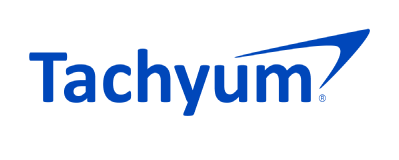Tous les articles
novembre
- | ECINews
Tachyum divise par 100 les coûts des LLM pour les généraliser
Tachyum® a détaillé dans un livre blanc comment utiliser les formats 4-bit Tachyum AI (TAI) et 2-bit effective per weight (TAI2) dans la quantification des Large Language Models (LLMs) sans dégradation de la précision.
octobre
- | Les Technos
Episode 416 : La fin du VPN en France?
Z comme Zetta (00:43:16) : La course vers le Zettaflop est lancée. Tachyum dévoile un supercalculateur avec une puissance de 50 Exaflop, 8 Zettaflop pour l’entrainement de modèles IA.
- | The Press Free
Tachyum détaille la formation à l’IA à l’aide de sa technologie révolutionnaire Super-Sparsity
Tachyum™ a publié aujourd’hui un livre blanc qui examine comment son processeur Prodigy répond aux tendances de l’IA, permettant des charges de travail d’apprentissage en profondeur respectueuses de l’environnement en réduisant la consommation d’énergie et les émissions de carbone.
juillet
- | ITEuropa
Tachyum extends chip sales business to CEE region
Tachyum is partnering with M Computers, an IT services provider based in the Czech Republic, to bring its Prodigy high-capacity data processing technology to commercial, industrial and scientific research organisations in Central and Eastern Europe (CEE).
juin
- | cowcotland.com
Tachyum Prodigy : Le processeur Ultime en 128 Cores, 5.7 GHz, DDR5 16 canaux et TDP de 950 watts
Voilà donc le Tachyum Prodigy, un processeur qui offre un design universel afin de permettre de multiples utilisations. Ainsi, ce module peut-être un CPU Central Processor Unit, un GPU Graphic Processeur Unite ou un TPU Tensor Processing Unit. L’idée est de réduire les couts avec un processeur puissant capable de tout faire. Et il faut dire que ce Tachyum Prodigy devrait en avoir sous le pied.
- | L’ Usine Nouvelle
Pour bien démarrer la semaine, un processeur trois-en-un pour accélérer le calcul intensif
Avec son processeur «universel » Prodigy, la société slovaque Tachyum a été l’une des attractions du salon ISC High Performance, qui s’est achevé jeudi 2 juin à Hambourg (Allemagne).
- | L’ Usine Nouvelle
Le processeur trois-en-un Prodigy accélère le calcul intensif, en modérant sa consommation énergétique
Le processeur Prodigy se démarque par sa polyvalence, en combinant les fonctions d’un CPU, d’un GP-GPU et d’un TPU. Le slovaque, qui en est à l’origine, s’attaquera au marché du calcul intensif l’an prochain.
mai
- | Tom's Hardware
Des APU Instinct MI300 Zen 4 / CDNA 3 ?
Néanmoins, ces configurations vont certainement se développer à l’avenir : l’entreprise Tachyum par exemple a récemment annoncé ce qu’elle qualifie de “premiers processeurs universels au monde” ; ces processeurs baptisés Prodigy comprennent un CPU, un GPU et un TPU.
- | Les Numeriques
Tachyum vise Intel avec ce qui pourrait être le processeur le plus puissant jamais créé
La société Tachyum vient d’annoncer le Prodigy T16128, un processeur à 128 cœurs qui offre une énorme puissance de calcul à un tarif contenu.
Tachyum lance Prodigy : Intel, AMD et Nvidia en sueur ?
Ce 11 mai, la compagnie Tachyum, connue pour ses promesses de révolutionner le monde de l’informatique, vient officiellement de lancer son processeur : Prodigy.
mars
- | aithority.com
Tachyum Advances System Software To Pre-Production State
“These improvements will allow for quick and seamless integration of technologies into Tachyum-based environments when deployed in data centers. As we near volume production of Prodigy, it is imperative that our software provides the tools supercomputers require to transform the industry.”
juin
- | TechRadar
Tachyum says it's one step closer to Prodigy release
Built using field-programmable gate array (FPGA) emulation boards, Tachyum has been hailing Prodigy’s significantly improved performance and lower lower energy consumption for the past few years.
- | EE Journal
Are We Ready for Human Brain-Scale AI?
Targeted at hyperscale data centers, the Prodigy Universal Processor architecture is predicted to out-perform central processing units (CPUs), graphics processing units (GPUs), and tensor processing units (TPUs) for data center, artificial intelligence (AI), and high-performance computing (HPC) applications. For example, Prodigy will outperform NVIDIA’s fastest GPU in HPC, as well as AI training and inference tasks (125 HPC Prodigy racks can deliver 32 tensor EXAFLOPS).
mai
- | Business Talk Magazine
Meet Dr. Radoslav Danilak- The Man Behind Tachyum
Prodigy’s intense computing muscle can help AI use cases in particular. Convolutional neural networks, deep learning AI, symbolic AI, general AI, and bio AI are the disciplines that have emerged in recent years, each with its own set of algorithms and computing criteria. Human brain modeling, meanwhile, is in high demand by R&D ventures due to its promise of extracting information from large data sets. The Tachyum Universal Processor Platform is suitable for projects like the real-time Human Brain Project, which needs more than 1019 Flops (10,000,000,000,000,000,000 floating-point operations per second – 10 exaflops), as well as supplying computing resources for science and engineering solutions that today’s systems cannot offer.
juin
- | The Washington Times
Revolutionary microchip hailed as 'generational' breakthrough that will upend defense tech
Revolutionary microchip hailed as ‘generational’ breakthrough that will upend defense tech


